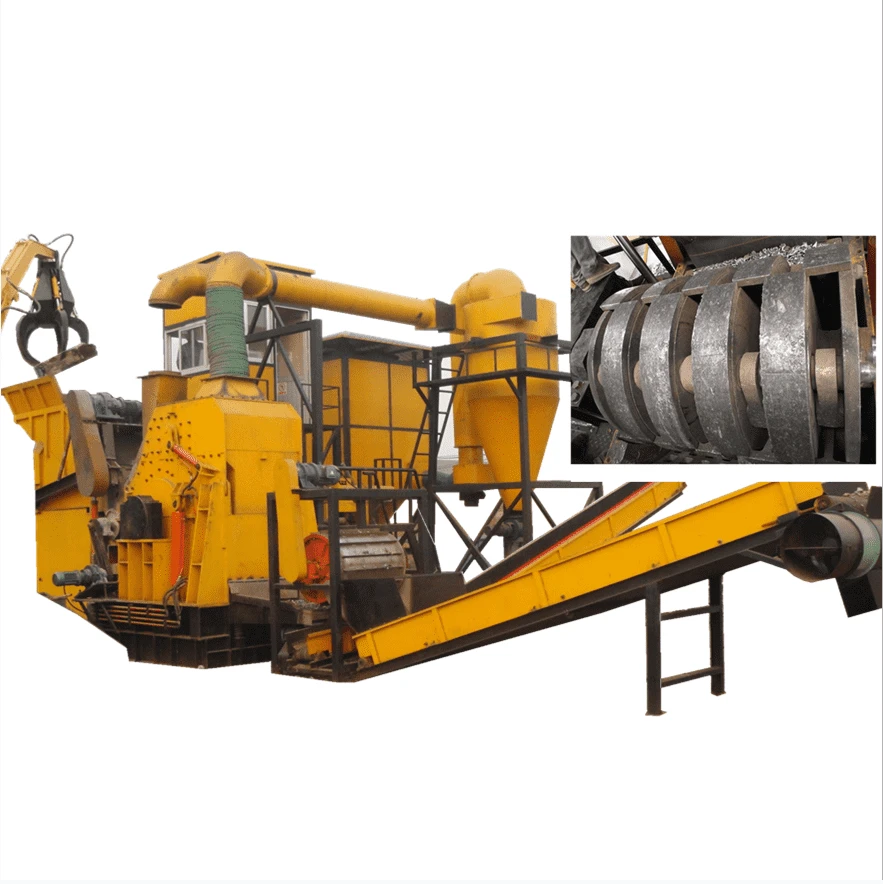

Aug . 16, 2024 18:32 Back to list
How to Recycle Electronics A Comprehensive Guide
As technology continues to evolve at a rapid pace, the number of electronic devices we use daily—from smartphones to laptops, tablets to televisions—grows exponentially. However, with this increase in electronic consumption comes a pressing issue electronic waste (e-waste). E-waste is one of the fastest-growing waste streams globally, and improper disposal can have detrimental effects on the environment. Fortunately, recycling electronics is a responsible way to manage this waste, conserve resources, and protect our planet. In this article, we’ll explore how to recycle electronics effectively.
Understanding E-Waste
Before we dive into the recycling process, it’s essential to understand what constitutes e-waste. E-waste includes any electronic device or component that is no longer useful, broken, or outdated. This can range from computers and smartphones to printers and microwaves. Many of these products contain hazardous materials, such as lead, mercury, and cadmium, which can leach into the soil and water if disposed of improperly.
Why Recycle Electronics?
Recycling electronics is crucial for several reasons
1. Environmental Protection Proper recycling minimizes toxic waste that can harm our ecosystems and health. It reduces pollution by diverting e-waste from landfills and preventing hazardous materials from entering the environment.
2. Resource Conservation Electronics are made from valuable materials such as metals, plastics, and rare earth elements. Recycling allows us to recover and reuse these resources instead of extracting new raw materials, leading to reduced energy consumption and lower carbon emissions.
3. Economic Benefits The recycling industry creates jobs and stimulates local economies. Additionally, recycled materials can often be processed more economically than newly mined resources.

Steps to Recycle Electronics
1. Identify E-Waste Start by gathering all of the electronic devices you no longer use. This includes computers, mobile phones, televisions, and household appliances that need to be disposed of responsibly.
2. Check Local Regulations Different regions have varying regulations regarding e-waste disposal. Check your local government’s website or contact waste management authorities for guidelines on e-waste recycling in your area.
3. Find Recycling Programs Many communities offer e-waste recycling programs, and you can often find drop-off events for electronic devices. Major retail chains and manufacturers also have take-back programs, allowing you to return old devices when purchasing new ones.
4. Erase Personal Data Before recycling your electronics, ensure that you erase all personal data. For smartphones and computers, perform a factory reset and remove any memory cards. Use data-wiping software if necessary.
5. Consider Donation If your old electronics are still functional, consider donating them to local charities, schools, or organizations that can make use of them. Many groups accept working devices and can refurbish them for those in need.
6. Utilize Certified E-Waste Recyclers When selecting a recycling option, ensure that you choose a certified e-waste recycler. Look for certifications like R2 (Responsible Recycling) or e-Stewards, which guarantee responsible recycling practices.
Conclusion
Recycling electronics is more than just a responsible choice; it’s a vital part of reducing e-waste and protecting our environment. By following the steps outlined in this guide, you can ensure that your old devices are disposed of safely and sustainably. Remember, every little effort counts, and when we all do our part, we can collectively make a significant impact. So, whether you’re upgrading to the latest smartphone or cleaning out your closet, always consider the lifecycle of your electronics and prioritize recycling.
Latest news
Troubleshooting Common Eddy Separator Problems
NewsJul.04,2025
The Role of Metal Recycling Plants in Circular Economy
NewsJul.04,2025
The Impact of Recycling Line Pickers on Waste Management Costs
NewsJul.04,2025
Safety Features Every Metal Shredder Should Have
NewsJul.04,2025
How Industrial Shredders Improve Waste Management Systems
NewsJul.04,2025
How Cable Granulators Contribute to Sustainable Recycling
NewsJul.04,2025